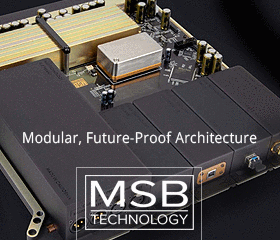It is a bit more complicated unfortunately and comes down to whether data can be guaranteed/error correction/retransmission, but yes a primary consideration is streaming (real-time time sensitive includes VOIP/vid conferencing/media streaming for both video and audio/etc) vs non-streaming (includes file copying/file transfer/web browsing file transfer-downloadetc).
This has to take into consideration the pysical layer, network protocol and critically session/application control that for non-streaming sessions can have advanced with high level data integrity-redundancy-correction/retransmit.
As an example say you setup server-media player system:
The music files you download and put onto the NAS will be bit perfect and without jitter, because this is using something like SMB/CIFS for ensuring the data is transferred and data integrity guaranteed (session and application-to-application).
Now those files when played (whether pushed or pulled) has the potential to suffer bit errors/jitter/etc as the session-application control is only for aspects not pertaining to the actual music data streamed.
Playing the music file uses multiple sessions combining both TCP and UDP (look back and I touched a bit on this) with UDP used for the real music data that is time-latency sensitive.
As a real world example using wireless with poor strength-signal quality.
You will still be able to transfer the file, if problems happen it will either retransmit or possibly require the operation to start again but is pretty painless.
But when it comes to playing the music over the wireless network then it is possible one can hear glitches and worst case scenario a total breakdown of session-application between the server (whether NAS or laptop) and the end device player-dac that may require a reboot of said end device or refresh of application management.
This actually has happened for some users with various solutions/hardware.
Before anyone responds please appreciate this is a very basic-crude description.
Anyway Habanero the consideration is streaming time-latency sensitive data, physical network-transmission considerations such as Ethernet-WLAN-USB-etc, network protocols used (will usually be several simultaneously), wether it is possible to support higher level data integrity-error correction from session and application (this potentially can involve multiple sessions between multiple devices such as ipad controller-NAS server-end device player/DAC) such as offered by SMB/CIFS (file management-sharing) and their equivalents.
So yes it is possible for jitter/latency/bit errors even over a network including Ethernet BUT this is really only relevant to when the music is being played (which would involve streaming).
Setting up/transferring/copying files on a NAS or laptop will always be bit perfect with no issues pertaining to jitter-latency-etc due to data integrity guaranteed and also the operation is not real-time time sensitive streamed.
Now ripping CDs is not necessarily bit perfect but this is something else and beyond I think what the purpose of this thread was about.
Cheers
Orb













